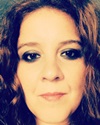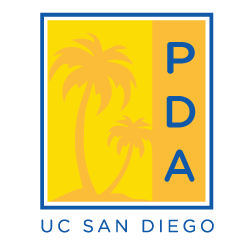
Andreea E. Radulescu, Ph.D.
Account Manager | Complete Medical Communications

- Interview Overview
Interview Overview
Interviews and Editing by: Alexandra Bortnick
Interview: October 2015
Transition: January 2011
1. Please list your previous department at UC San Diego and provide a brief description of the research you conducted?
Department: Ludwig Institute for Cancer Research, Department of Cellular and Molecular Medicine; Research: nuclear architecture (Role of NuMA in the interphase nucleus) and epigenetic specification of centromere assembly
2. Please describe your current job profile?
Account Manager, Medical Communications – Manage multidisciplinary teams to ensure on-budget, on-time, on-strategy performance. Manage project activities, logistics, client communication and budgets.
3. What made you decide to transition into your current position?
I felt that, in the big scheme of things, lab work had become limiting (i.e. more of the same in terms of skills, expertise, approach and daily activities). At the same time I wanted to develop new skills, challenge myself in new ways, and cultivate talents and strengths that I knew I had, but that I was not using in the lab.
4. Apart from the research you conducted, do you feel like anything in particular has helped you acquire your current position?
Networking was the single most powerful approach for obtaining an interview and a job outside of academia, given that I had no work experience outside the lab or any directly transferable skills.
5. Please list some of the most striking similarities and differences between your postdoc and current position?
Similarities and differences: I can’t list clear-cut similarities and differences, but the bottom line is that PhD training (i.e. the way of thinking, problem solving, etc.), as well as the in-depth knowledge of the subject matter one specializes in, translates extremely well into a multitude of fields, not just to academia. I would like to emphasize that fields outside of academia (finance, law, medical communications, business, design, etc.) can absolutely benefit from hiring PhDs. In retrospect, I wish that the vision/mission of grad schools and postdoctoral programs would be to train scientists for all of these other fields and not just for academia, which in this day and age seems very limiting, unrealistic and lacking in perspective.
6. Is there any specific challenge (during the entire process of transitioning) that you would like to highlight and, if so, how did you overcome it?
The main challenge when changing careers is the lack of job experience and directly transferrable skills. This, combined with the advanced degree, put me in a tricky position – inexperienced but overqualified. To overcome, I took some new courses (that showed motivation for career change, and added new knowledge), I networked and when the opportunity arose, I decided to accept an ‘entry level’ position that allowed me to ‘prove myself.’ Importantly, I always knew that I could advance quickly and did just that, by renegotiating or moving into a new position at a new company.
7. Please describe your goals and ambitions for the next 5 years?
Advance my career and move into a more creative/strategic role that would allow me to bring back into the day-to-day more of my scientific background, in addition to the new skills developed since leaving the lab.
8. What do you feel you could have done more, as a postdoc, to help prepare you for or acquire your current position?
Explore new fields where PhD training translates well, network, build a ‘portfolio’ or a track record to show determination towards a certain career path and if necessary, pursue additional training to gain experience (i.e. internship, courses, etc).
9. What do you feel is the most important advice you can give to a current UCSD postdoc in order for them to obtain a position such as yours?
See #8. Explore, network, and determine what you need to do to increase your chances of making a successful career change (biggest challenge = no ‘real world’ work experience).
